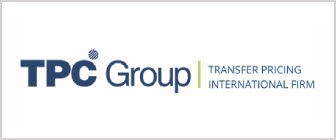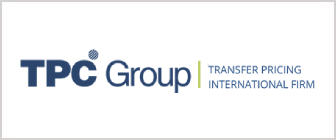To be constantly updated with the changes related to Transfer Pricing is essential due to its importance for local and multinational groups according to the provisions of the Income Tax Law.
The Transfer Pricing regime is a tax control rule measuring against tax evasion and profit shifting through related party transactions. In Peru, the Transfer Pricing rules apply to transactions performed from, to, or through non-cooperating or low/no taxation countries or territories; or those performed with parties whose income, revenues, or profits from such transactions are subject to a preferential tax regime1.
Therefore, it is important to understand that two or more persons, companies, or entities are considered to be related parties when one of them participates directly or indirectly in the management, control, or capital of the other; or when the same person(s), directly or indirectly, participates in the management, control, or capital of several persons, companies, or entities. Subsection b) of Article 32-A of the Income Tax Law, jointly with Article 24 thereof, establishes the cases in which the relationship is configured.
It should be noted that, in 2017, new informative affidavits were established, such as the Local Report, Master File, and Country-by-Country Report, aligning with the supporting documentation indicated in Action 13 of the BEPS Plan given by the Organization for Economic Cooperation and Development (OECD).
According to the current regulations, taxpayers required to file the Local Report are those who have carried out transactions with related parties and/or parties resident in non-cooperating or low or no taxation countries or with preferential regimes and have had accrued income in the year exceeding 2300 Tax Unit.
Conversely, those taxpayers whose transactions subject to the Transfer Pricing regime exceed 100 Tax Units up to the amount of 400 Tax Units will be required to file Annex I of the Local Report. If the amount exceeds 400 Tax Units, the taxpayer will be required to file the four annexes.
In the case of the Master File, those taxpayers whose accrued income has exceeded 20,000 Tax Units and have carried out transactions within the application scope of the Transfer Pricing rules, whose amount of transactions is equal to or greater than 400 Tax Units, are obliged to file this.
Concerning the Country-by-Country Report, the parent company domiciled in the country of a Multinational Group is obliged to file this as long as its income for the fiscal year prior to that reported exceeds S/. 2,700,000,000,000.00 (soles)2. Likewise, the aforementioned is given when any of the following situations are verified:
- The taxpayer domiciled in the country has been appointed by the multinational group as a parent representative.
- No agreements enabling the Tax Administration to obtain the Country-by-Country Report from other administrations3.
All of the abovementioned is summarized in the importance for taxpayers obliged to have Transfer Pricing documentation to meet the information requirements and the imposition of fines that may amount to 0.6% of net income with a ceiling of 25 Tax Units4.
Carlos Vargas Alencastre
Founder & CEO TPC Group.
1Legal Basis: Paragraph a) of Article 32°-A (1) of the Income Tax Law, as amended by Article 3 of Legislative Decree No. 1381 and Article 108 (2) of the Income Tax Law Regulations, as amended by Article 2° of Supreme Decree No. 340-2018-EF.
2Legal Basis: Subsection b) of Article 116 of the Income Tax Law Regulations.
3Legal Basis: Paragraph 10.1.2 of Article 10 of the Superintendence Resolution N°163-2018/SUNAT.
4Legal Basis: Paragraph 27 of Article 177 of the Tax Code.


